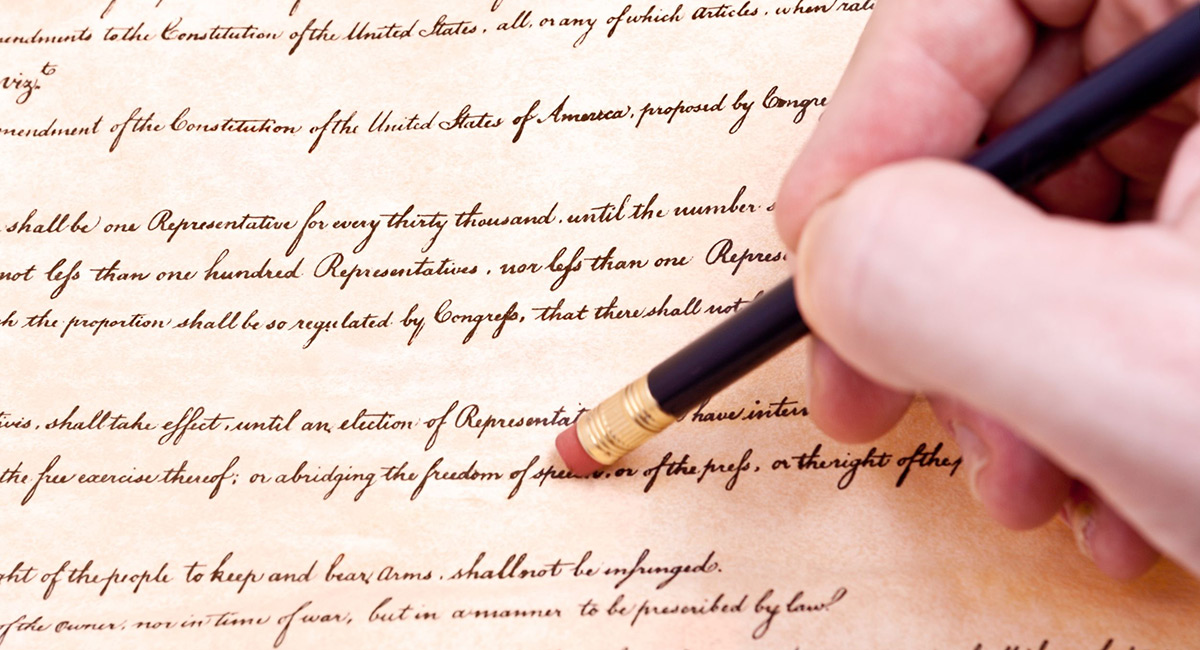A foundational principle at all truly great universities is that there is almost complete freedom of expression, especially the right to say what one wants. Where the right to express one’s thoughts is suppressed, learning is thwarted, great ideas die, and with that, innovation and discovery. Suppression of thought is what ended the scientific career of Galileo who believed, correctly, that the earth revolved around the sun. The reduction of intellectual suppression led to a flowering of western civilization. The Enlightenment was a revolt against outlawing ideas, to the great economic, cultural, political, and literary benefit of humankind. In modern times, universities in authoritarian countries only achieve distinction in scholarly areas where ideological barriers into unfettered inquiry are not imposed, mainly the STEM disciplines.
To be sure, there are sometimes a few gray areas regarding free campus expression: for example, the right to peaceful protest should be assured, but that does not give protesters the right to shut down the free speech of others. Or, while free speech should be permitted all over the campus (not being limited to small “free speech zones”), that does not give individuals the right to march into classrooms or administrative offices at will and disrupt university activities.
The gold standard of statements proclaiming institutional campus support of free speech is that in 2014 at the University of Chicago. As its Committee on Freedom of Expression put it, “the University’s fundamental commitment is to the principle that debate or deliberation may not be suppressed because the ideas put forth are thought by some or even most members of the University community to be offensive, unwise, immoral, or wrong-headed.” Indeed, university leaders have said on several occasions that students in the course of their studies should expect to be confronted with uncomfortable, disturbing and offensive ideas—that is part of the learning and maturation process. Universities are not around to entertain or comfort students, but rather to challenge, excite and even disturb them intellectually.
Toleration of the discordant views of others is important in having a just, happy society. The Soviet Union built what Churchill called an Iron Curtain, best manifested in the Berlin Wall, trying to suppress the ultimate act of free expression, movement to areas where people could speak their mind with little fear. People literally died seeking to say and do things prohibited in the Soviet hellhole of East Germany.
The foremost American organization monitoring free expression and related principles (e.g, due process) is the Foundation for Individual Rights in Education (FIRE). While it is important for schools to adopt a statement similar to that of the University of Chicago, it is another thing to implement it. Action speaks louder than words. While according to FIRE more than 70 schools have adopted the Chicago Principles, some in fact also have some policies directly contradicting them, punishing certain types of expression. Prominent examples include Princeton, Case Western Reserve, Georgetown, and Johns Hopkins.
For example, the Board of Trustees of Case Western Reserve University, known by Clevelanders as “Case” or “CWRU”, in November 2019 adopted a very nice statement: “CWRU is committed to freedom of speech, thought, expression and assembly, and guarantees all members of the CWRU community the fullest possible right to hold and express opinions, to speak and to write, to listen, challenge, inquire, and learn.”
Tell that to the CWRU Division of Student Affairs, the university redoubt often the villain on America campuses, leading campus efforts to suppress politically incorrect expression. It proclaims “the posting of any derogatory, obscene or offensive messages either explicitly or implicitly, is strictly prohibited.” Will the real Case Western University (or Princeton, Georgetown, Johns Hopkins and others) please stand up?
Public polling indicates that a resolute commitment to free speech has declined markedly over time, disturbingly especially for younger Americans. Too often today, people develop the intolerant and narrow view that their own view is not only superior to others, but that alternative, ostensibly less accurate or enlightened perspectives should be suppressed. The good news, however, is FIRE says the number of schools with their “red” ranking (anti-free speech), has been in decline, as has the number of blatantly repressive rules, such as limiting free speech to small zones on campus.













